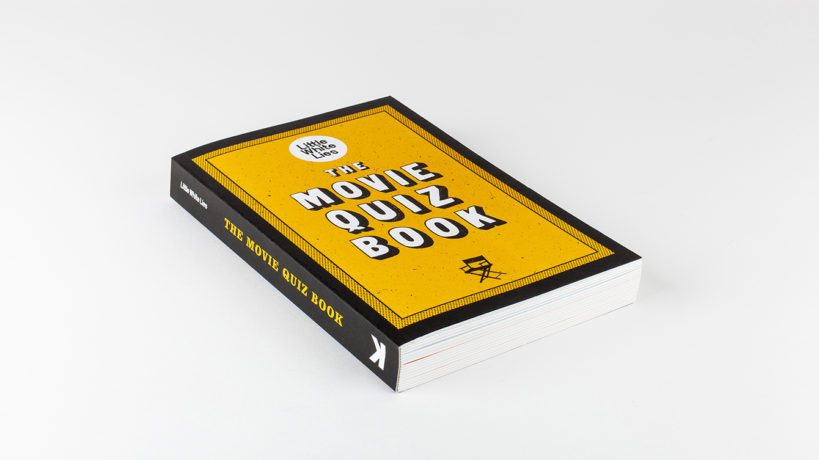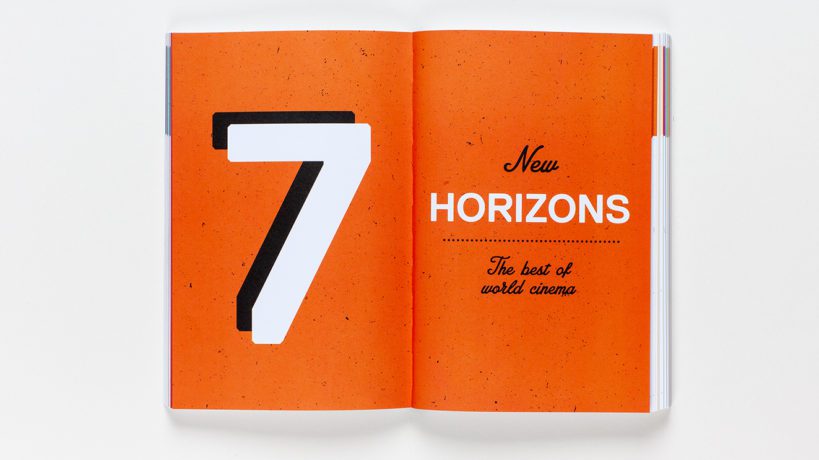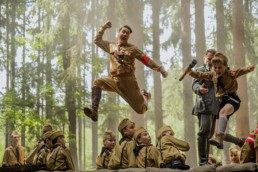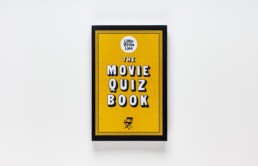WWII Satire 'Jojo Rabbit' is Undeniably Brilliant
If I were to tell you that a story about a young aspiring Nazi whose deepest desire is to fight for Germany on the front lines during WWII could be funny, would you believe me? It's understandable for one to assume that it would be impossible to find humor in this plotline, but leave it to Taika Waititi to portray Hilter as hilarious in the colorfully off-color satire, Jojo Rabbit.
Jojo (Roman Griffin Davis) is, on one hand, a typical ten-year-old boy; he's susceptible to propaganda and peer pressure – specifically that which supports the war. He also does his best to take care of his single mother, Rosie (Scarlett Johansson). But, on the other hand, Jojo is also a lonely empath with an imaginary friend who just so happens to be Adolf Hitler (Taiki Waititi). Jojo's Hitler plays both devil and devil's advocate; whether it's encouraging Jojo to participate in wild acts or teaching him how to "properly" annunciate "Heil Hitler," this imaginary sidekick is obviously not a great influence on young Jojo. When Jojo unexpectedly discovers that his mother has been hiding a Jewish girl (Thomasin McKenzie) in their home, his allegiance to the Nazi party holds strong, and he threatens to turn her in. But Jojo quickly discovers that, despite being brainwashed into believing that all Jews are evil, he is starting to fall in love with the Jewish girl in the attic. Something that both the real and imaginary Hitler disapprove of.
Waititi, who himself grew up a Māori Jew, plays Hitler as a caricature, a larger than life goof with narcissistic tendencies who is mesmerizing to watch on screen. Roman Griffin Davis, in his first-ever film role, should be praised for multiple scene-stealing performances while going head to head with some of today's top comedic talent. Davis' co-stars include Johansson, Sam Rockwell, Rebel Wilson, Alfie Allen, and Stephen Merchant, all distinguishable talents who make the film memorable.
Jojo Rabbit is based on Christine Leunens’ novel Caging Skies, and the script is full of powerful one-liners and sharpshooting dialogue. However, the strongest accomplishment of the narrative is the amount of call back jokes that come full circle for complete satisfaction. The seeds that were planted at the beginning of the story are slowly watered throughout the film, and seeing them bloom in the third act is a reminder of how strategic and methodical the script actually is. Jojo Rabbit is like watching a game of chess, and the final scene is its checkmate.
Aside from the provocative jokes, nestled just beneath the surface, this is a story about tolerance and acceptance. There are plenty of moments that are unexpectedly heartfelt and emotional, it strikes a perfect balance between silliness and solemnity to create a meaty, well-rounded film. It's been said that '"Children are not born with hate, they are trained to hate," and Jojo Rabbit uses an unconventional and unforgettable approach to prove that point. – Morgan Rojas
JOJO RABBIT (2019)
Starring: Roman Griffin Davis, Thomasin McKenzie, Scarlett Johansson
Directed by: Taika Waititi
Written by: Taika Waititi
Distributor: Fox Searchlight
Running time: 108 minutes
Playing: Opening 10/18 at ArcLight Hollywood and The Landmark
'Parasite' is an Arthouse Masterpiece
PARASITE (2019)
Starring Song Kang Ho, Lee Sun Kyun, Cho Yeo Jeong, Choi Woo Shik
Directed by Bong Joon Ho
Written by Bong Joon Ho, Han Jin Won
Distributed by NEON. 132 minutes. Opening 10/11 at ArcLight Hollywood and The Landmark.
I didn't know it was humanly possible to hold your breath for two hours, but after seeing Parasite, let me tell you, it is. South Korean director Bong Joon Ho's highly anticipated thriller has been hot on the lips of many cinephiles for most of 2019; the five-minute standing ovation after its world premiere at the Cannes Film Festival concurred that its hype is fully deserved. Thematically darker that Okja and more realistically unnerving than Snowpiercer, Parasite is a fantastically satirical and biting look at the economic divide, ethics vs. morals, and social commentary on privilege that, in my opinion, is the best film of the year.
Living literally below the poverty line in an underground basement apartment, the Kim family – Ki-taek (Song Kang Ho), his wife, Chung-sook (Chang Hyae Jin), their smart (and smart aleck) daughter Ki-jung (Park So Dam), and college-age son, Ki-woo (Choi Woo Shik) – struggle to make ends meet, as evident by their desperation when they're no longer to freeload off of their neighbor's free wifi. The Kims are used to taking the path of least resistance, barely getting by with contract work folding pizza boxes for a local shop. Unexpectedly, a friend presents Ki-woo with an opportunity to work as an interim English tutor for the daughter of the very affluent Park family. Hesitant at first – Ki-woo is unsure if his street smarts will translate into academic smarts – he eventually agrees to meet with the family. Almost immediately, he wins over the affection of the naive Mrs. Park (Cho Yeo Jeong), who welcomes Ki-woo into their high-class world.
No good can come when gullibility meets greed, as Ki-woo's family sees his employment as an opportunity to score for themselves. What follows is a comedic and thrilling unraveling – with Ocean's 11-style forethought and mechanics – that makes every moment feel like a white-knuckle thrill ride. Bong Joon Ho captures societal issues and human crises in pitch black tones, exposing them in a way that is both shocking and thought-provoking. It's a fantastic example of a perfect film, from script to screen and beyond.
"If you make a plan, life never turns out that way," Ki-taek tells Ki-woo during one of the Kim family's lowest points. Brutally honest life advice (that I agree, should be taught to the young), this is also the perfect sentiment to summarize Parasite: expect the unexpected. Original and authentic arthouse films as good as Parasite don't come around often, and we're all lucky we are here to witness its big-screen release.
A Beginner's Guide to: Bong Joon Ho
South Korean director Bong Joon Ho is having quite a successful 2019.
He was awarded the Palme d’Or at the Cannes Film Festival for his latest feature, Parasite, a family drama/thriller that explores the social and economic divide between the rich and the poor. As of posting this article, the film currently sits at 100% on Rotten Tomatoes. Many are calling it the best film of the year and I fully endorse that statement.
The current attention on Bong Joon Ho's artistic vision has come at the perfect time. He is a director not afraid to take risks, and not just for shock value. His stories serve a purpose. Since his first directing credit in 1994 (the short film White Man), Bong Joon Ho has become known for mixing darkly disturbing black humor with political and social consciousness, all rooted in a form of reality; whether it be in this universe or a parallel one. Sometimes it's easier to watch one of Bong Joon Ho's films and believe that the character conflicts and torturous situations are movie make-believe, but it's hard to deny that unjust police interrogations, devastating effects of manmade environmental abuse, and hunger crises aren't happening in real life. All of these things and more are still issues today.
In celebration of one of contemporary cinema's boldest filmmakers, here are three classic Bong Joon Ho films to check out before you watch Parasite, in theaters this Friday.

Snowpiercer
In his first English-speaking feature film, Snowpiercer is a tour-de-force, a uniquely-crafted powerhouse of a movie that, like the fast-paced train it’s named after, charges ever-forward with such uncompromising force and vision that it leaves behind any semblance of what you might expect from a typical action flick.
Based on the 1982 French graphic novel Le Transperceneige, Snowpiercer tells the story of a failed global-warming experiment (performed in the year 2014) that turns the planet into a frozen icebox. We are introduced to the last of the human race, the poorest of which eat gelatin-like “protein blocks” and live under guard by the utilitarian government-state in the back of the train. This train has been making the same cyclical trip for the past seventeen years. Of course, this being the day that the lower class finally has had enough, they set in motion their plan: to charge through each car to make their way to the front of the train and free themselves from their enslavement. Snowpiercer's untraditional, stylized storytelling combines sci-fi expanse and art house intimacy, and will certainly entertain by making your head spin as it rockets past you.
Snowpiercer is available to stream on Netflix or Amazon.

Mother
This 2009 crime drama opens with a breathtaking wide shot of a woman (Hye-ja Kim) in an expansive wheat field. Her frail body starts to move in interpretive dance, a range of emotions running through her body and face. This woman is the titular Mother, and her story is one of perseverance. When her mentally delayed twenty-eight-year-old son, Yoon Do-joon (Won Bin), is framed for the murder of a local schoolgirl, his mother becomes his biggest and at times, only, support. Her quest for justice won't stop until she proves he didn't do it.
Her son's unjust police interrogation and mental abuse echo situations we've seen in the media, with TV shows like "Making a Murderer" and "When They See Us" as prime examples of young men being taken advantage of by authority figures in their most vulnerable moment. Mother's unwavering determination to protect and save her son takes her on a journey throughout the underbelly of South Korea, and she is willing to do whatever it takes to get him back.
Mother is available to stream on iTunes or Amazon.

Okja
Swedish teenager Greta Thunberg commanded the world's attention when she delivered an impassioned speech at the UN Climate Summit on September 23, 2019, speaking about the dire effects of climate change and how its consequences are going to be very terrible, very soon. Thunberg has been praised by many for her wiser-than-her-years prognosis of the future but others, including the President of the United States, continued to downplay and even mock Thunberg's compassionate pleas. The world needs to pay attention to young women with something to say, and Bong Joon Ho knows this. His protagonist in Okja is a preteen named Mija (Seo-hyun Ahn), a headstrong girl who stops at nothing when her best friend – a genetically-modified, government-loaned super piglet named Okja – is taken away from her to face an unknown future.
Super piglets were thought to be the answer to the global hunger crisis, a revolution in the livestock industry. The brainchild of the Mirando meat corporation's CEO Lucy Mirando (Tilda Swinton), the super piglets were to be loaned out to farmers across the world and in 10 years' time, returned to Mirando to be reproduced and ultimately slaughtered. At a time when environmental activism and ecological awareness is at an all-time high, Bong Joon Ho's Okja is a powerful look at the true cost of consumer greed and capitalism.
Okja is available to stream on Netflix.
'Villains' is a Stylish and Savage Battle of the Bad Guys
VILLAINS (2019)
Starring Bill Skarsgård, Maika Monroe, Jeffrey Donovan & Kyra Sedgwick
Directed by Dan Berk & Robert Olsen
Written by Dan Berk & Robert Olsen
Distributed by Alter/Gunpowder & Sky. 89 minutes. Opening 9/20 at Regal LA Live.
The allure of the "bad boy" has long been a cinematic staple, regardless of gender. From Jim Stark in Rebel Without a Cause to Miranda Priestly in The Devil Wears Prada, audiences are equally fascinated and terrified by the suavity and unpredictable behavior of these characters. And when the bad guys are Bill Skarsgård and Maika Monroe, we're practically begging for these small-time crooks to break into our house just so we can be in their presence. In Villains, writer/directors Dan Berk and Robert Olsen pit this charming duo against an equally charming, yet much more disturbed, couple in a dark comedy that's pure savage.
Jules (Monroe) and Mickey (Skarsgård) are the millennial versions of Bonnie and Clyde, robbing gas stations to acquire just enough money to escape to Florida and live out their wildest fantasies: a life without rules and responsibilities. After yet another successful robbery, Mickey and Jules encounter a hiccup when their getaway car runs out of gas, stranding them on the side of a highway. They spot an isolated, and more importantly, a vacant, house nearby and decide to break in and steal their car. What starts off as a simple con job turns into much more when the duo realize the homeowners' fruit is fake, appliances are out of date and find a little girl (Blake Baumgartner) chained up in the basement. Clearly, some discoveries are more shocking than others.
The tension comes to a crescendo when the homeowners, George (Jeffrey Donovan) and Gloria (Kyra Sedgwick), return home. What transpires is a darkly hilarious game of cat and mouse between the equally kooky couples. Sexual electricity mixed with mental instability provides plenty of twists to the high stakes our protagonists find themselves in. The laughs outnumber the scares, and Villains is all the better for it.
Villains feels like a much bigger film than its humble scope of production. It takes place primarily in one location and lists only eight actors in its cast, but the performances are mighty fierce. Maika Monroe (It Follows) and Bill Skarsgård (It) share palpable chemistry and bring the story to life with their exaggerated delivery, a perfect counterbalance to Jeffrey Donovan and Kyra Sedgwick's more even-keeled tone. Music from Courtney Barnett (Pedestrian at Best) and Redding Hunter (Safe Travels) further adds to the film's energy. It's set to screen only at Regal Theaters, for now (assuming a VOD in the near future), so keep this one on your radar if you're looking for a fun way to spend 90 minutes.
https://www.youtube.com/watch?v=x2tGz4wDaQM
Little White Lies' 'The Movie Quiz Book' Will Even Stump Cinephiles
It's my birthday in a couple of days and I just received the most perfect present.
The UK film website Little White Lies, known for its edgy journalism coupled with unique animations and illustrations, has just released the ultimate book to test film nerds' knowledge of cinema past and present.

Coined the "greatest, wittiest movie quiz of all time," The Movie Quiz Book has over 1,600 questions, broken up into 15 color-coordinated chapters, that will put anyone’s love of the movies to the ultimate test.

Over 277 pages long (on nice, thick paper), The Movie Quiz Book will test your knowledge on the growth of the film industry and the accomplishments of female directors throughout the years, as well as the ability to recall music and lyrics, spell actors’ names, recognize famous final lines, and so much more.
Perfect for game nights, birthdays, pre-Oscar parties, and Cinespia picnics!
The Movie Quiz Book is now available to purchase through LaurenceKing.com.
Answer to front page question: Signature Cup
'Monos' Mixes the Beautiful With Barbarism
MONOS (2019)
Starring Moises Arias, Julianne Nicholson, Sofia Buenaventura
Directed by Alejandro Landes
Written by Alejandro Landes and Alexis Dos Santos
Distributed by NEON and Participant Media. 102 minutes. Opening 9/13 at ArcLight Hollywood and The Landmark.
In only his third feature film to date, budding independent filmmaker Alejandro Landes has proven himself a talent for bringing uniquely realized visions to the big screen, filled with a dazzling display of mesmerizing visuals that bring an arresting and honestly observed look at humanity to life. His latest film, Monos, depicts a group of young guerrilla soldiers as they fracture and spiral into chaotic barbarism, evoking the thrills of Lord of the Flies but pushing new cinematic boundaries.
Set high atop remote Latin American hills (filled with incredibly photographed sequences), unsupervised Colombian rebel fighters belonging to a terror group known as "The Organization" pass the time the only way they know how to: horsing around, making out with each other and recklessly firing their machine guns (blame this on their immaturity as well as isolation). The young band's sole purpose is to keep watch over their American hostage, Doctora (Julianne Nicholson), who their higher-ups harbor as a bargaining chip in their favor. The "Monos," as they call themselves, receive periodic check-ins from a senior rebel leader, but for the most part, are left alone to fend for and govern themselves. When an unexpected ambush forces the Monos and Doctora down from their hideout in the sky and into the jungle, their desperation ramps up, as childish recklessness quickly turns into primal, physical and psychological warfare.
It's a slow burn of a film that raises more questions than answers (especially in the film's first act), but that doesn't mean there is a shortage of emotional strings that won't pull the viewer into this beautifully captured world. Led by powerhouse performances from the film's younger cast, including a combination of both amateur as well as professional actors (Moises Arias and Julianne Nicholson), the ensemble's on-screen chemistry is as authentic and disturbingly beautiful as the world in which they live. Bringing this all to life is cinematographer Jasper Wolf, whose stunning camerawork gives Monos a surreal fairytale-like aura.
Otherworldly visuals aside, the score and its Oscar-nominated composer is what initially attracted me to this film. Mica Levi, whose genius can be heard in films Jackie and Under the Skin, creates a sort of sound bath-meets-trance composition as opposed to a traditional orchestral score, making for a haunting, erratic, and pitch-perfect experience. While devoid of a more traditional narrative context, instead opting for an organically captured and impressionistically felt story, the payoff in Monos comes tenfold for those who are willing to give themselves over to Landes and his uncompromising vision.
https://www.youtube.com/watch?v=disclpVzoMQ
'Ms. Purple' is a Visually Stunning Sibling Drama
MS. PURPLE (2019)
Starring Tiffany Chu, Teddy Lee, Jake Choi
Directed by Justin Chon
Written by Justin Chon and Chris Dinh
Distributed by Oscilloscope Laboratories. 89 minutes. Opening 9/6 at the Nuart Theatre.
"373 backers pledged $73,634 to help bring this project to life." That's the impressive takeaway from director Justin Chon's Kickstarter page for his third independent feature film, Ms. Purple. Chon, who stunned audiences and critics alike with his sophomore film, Gook, once again brings a heartfelt story of Asian American cultural identity and the basic human desire of belonging to the streets of Los Angeles.
Ms. Purple centers around 23-year-old Kasie (Tiffany Chu) who unexpectedly finds herself the sole caretaker of her bedridden, comatose, dying father. Abandoned by her mother as a child, Kasie has always struggled with isolation and feelings of low self-worth, as depicted in the film's beautifully shot opening montage where she wanders alone and aimlessly down Koreatown streets. To make a living, Kasie depends on the seedy Soop Sok karaoke lounge, a local hotspot in the K-town pay-for-play market, where she works as a "hostess" (among other favors male customers may ask of her). Just as she feels like the world is caving in on her, Kasie's estranged brother Carey (Teddy Lee) agrees to return home and help with their father. Here begins the slow process of bridging the fractured familial gap between sister, brother, and father.
The brother-sister relationship between Carey and Kasie is an enviable one. They have much love for each other, and their dynamic reflects an undeniable sibling bond where things are often silently understood without the need to speak. It's clear throughout the film, that the relationship between Kasie and Carey is very tight-knit, and I couldn't help but reflect at how fortunate I am to have a similarly close relationship with my own brother.
Visually, Ms. Purple is a dreamy concoction of Wong Kar-wai, PT Anderson, and Barry Jenkins' Moonlight all rolled into one. The collection of colors, from sharp neon lights of the karaoke club to the naturalism of the morning sunrise, are exuberant. These pitch-perfect surroundings amplify the powerful performances from the whole cast, especially Tiffany Chu, whose raw emotions are felt bubbling to the surface throughout the entire film.
Ms. Purple is an all-around electrifying visual experience, from the production design to the soundtrack (available on Note For Note Records) and of course, the authentic and confident directorial choices. Justin Chon has made another powerhouse film that feels far bigger than the result of a modest Kickstarter campaign. Support true independent film by catching Ms. Purple this weekend, no doubt you'll leave the theatre inspired by both the film's message and the future of such new, diverse voices in filmmaking.
https://www.youtube.com/watch?v=C4woqZIHg7w
'Jawline' is a #NoFilter Look at Influencer Culture
JAWLINE (2019)
Starring Austyn Tester, Michael Weist
Directed by Liza Mandelup
Distributed by Hulu. 99 minutes. Now streaming on Hulu.
In today's very real and very bizarre social economy, social media "followers" are a source of currency and an "influencer" is a profession. My first introduced to Instagram was in my early twenties, barely post-college and dating a guy who was obsessed with popularity (surprise: the relationship didn't last long). My initial impression of Instagram – an app driven by attention-seeking individuals who crave the envy of others – hasn't changed much in the 7 years since I created my first username, in fact, things have only amplified since then. In director Liza Mandelup's engrossing documentary, Jawline, she explores the extreme highs and lows of internet fame through the eyes of a 16-year-old boy whose only ambition in life is to be "internet famous."
Austyn Tester isn't a household name to most, but to his tens of thousands of online fans, he is a celebrity crush. His room is covered in "I Love Austyn" posters sent to him from teenage girls across the country, giving him hope that a more exciting and prosperous life outside of his hometown in rural Kingsport, Tennessee is very possible. Austyn is a cute kid, there's no denying that. His southern drawl and boyish good looks are the initial hooks, but it is his continual message of positivity and love he shares with his followers that sets him apart from his competition (other teenage boys with newly formed abs and side-swept bangs).
Navigating the online ecosystem IRL proves much more difficult for Austyn than he anticipated. He joins his first Influencer tour which is supposed to be his "made it" moment, but struggles amid issues with low follower growth and confusing contract negotiations as well as the potentially sketchy talent manager, Michael Weist. Jawline doesn't judge Austyn for his wide-eyed ambitions. Mandelup delicately documents his quest for fame without drumming up additional drama for the film's sake, and this patience gives the film its bittersweet authenticity. You root for Austyn throughout the film, it's impossible not to, even though you know full well that his road to stardom is nearly impossible.
Jawline should be required viewing for parents with young children who are growing up in this social media dystopia; may it serve as a cautionary tale for those who crave internet fame, as well as those who obsess over these internet "celebrities." Liza Mandelup set out to make Jawline as a documentary, and it's an eye-opening one, but I'd also classify it as a horror film.
https://www.youtube.com/watch?v=AoVA0-w6VtA








